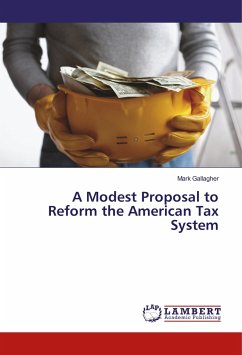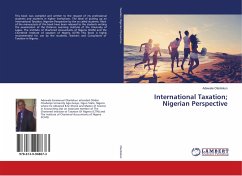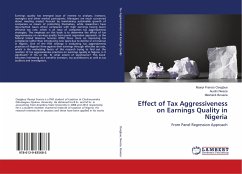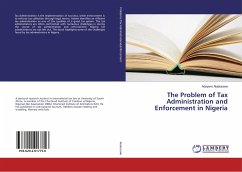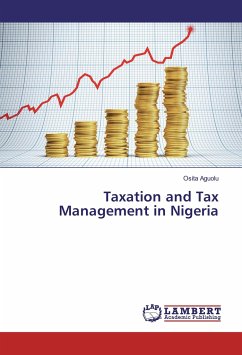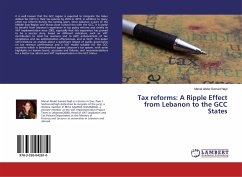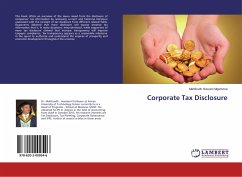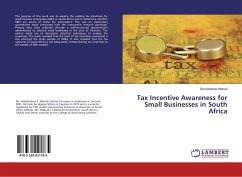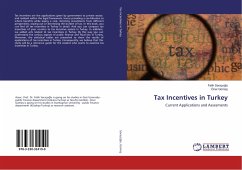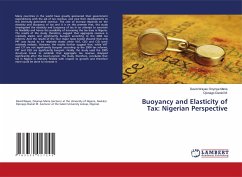
Buoyancy and Elasticity of Tax: Nigerian Perspective
Versandkostenfrei!
Versandfertig in 6-10 Tagen
24,99 €
inkl. MwSt.

PAYBACK Punkte
12 °P sammeln!
Many countries in the world have greatly sponsored their government expenditures with the aid of tax revenue, and owe their developments to this internally generated revenue. The rate of increase depends on the elasticity and buoyancy of tax and it is on this premise that, this study investigated the elasticity and buoyancy of tax in an attempt to ascertain its flexibility and hence the possibility of increasing the tax base in Nigeria. The results of the study, therefore, suggest that aggregate revenue is relatively elastic and significantly buoyant according to the 2004 tax reforms. And the ...
Many countries in the world have greatly sponsored their government expenditures with the aid of tax revenue, and owe their developments to this internally generated revenue. The rate of increase depends on the elasticity and buoyancy of tax and it is on this premise that, this study investigated the elasticity and buoyancy of tax in an attempt to ascertain its flexibility and hence the possibility of increasing the tax base in Nigeria. The results of the study, therefore, suggest that aggregate revenue is relatively elastic and significantly buoyant according to the 2004 tax reforms. And the results of the four major taxes tested showed that only PPT was found to be relatively elastic while VAT, CED and CID were relatively inelastic. However, the results further suggest that, while VAT and CIT are not significantly buoyant according to the 2004 tax reforms, PPT and CED are significantly buoyant. Finally, the study used the 2005 structural break to establish that aggregate tax revenue dropped significantly after the boom period. The study, therefore, concludes that tax in Nigeria is relatively flexible with respect to growth and therefore more could be done to increase it.



